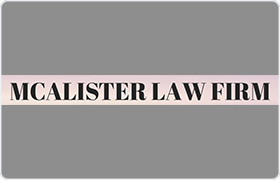Perkinston Misdemeanor Lawyer, Mississippi
Sponsored Law Firm
-
 x
x

Click For More Info:
-
McAlister Law Firm, LLC
419 Security Square Gulfport, MS 39507» view mapCriminal Defense Law Your Gulf Coast Attorney
An Attorney with Nineteen years of court room experience. Licensed in the States of Mississippi and Alabama.
228-265-5190
Not enough matches for Perkinston Misdemeanor lawyer.
Below are all Perkinston Criminal lawyers.
W. Fred Hornsby
✓ VERIFIEDCriminal, Divorce & Family Law, Immigration, Estate, Accident & Injury
W. F. "Dub" Hornsby, III, is a lifetime resident of Biloxi. A graduate of Mercy Cross High School, Mississippi State University and the University of ... (more)
James Bailey Halliday
Accident & Injury, Criminal, Traffic
Status: In Good Standing Licensed: 41 Years
Robert F Weaver
Criminal, Bankruptcy & Debt, Personal Injury, Family Law
Status: Inactive Licensed: 34 Years
Thomas Edward Payne
Admiralty & Maritime, Child Support, Adoption, Criminal
Status: In Good Standing Licensed: 37 Years
Steven N. Eckert
Personal Injury, Criminal, Intellectual Property, Environmental Law, Business
Status: In Good Standing Licensed: 20 Years
FREE CONSULTATION
CONTACTWilliam Corban Gunn
Accident & Injury, Workers' Compensation, Criminal, Car Accident, Employment
Status: In Good Standing Licensed: 19 Years
William M Kulick
Accident & Injury, Criminal, Divorce & Family Law, Estate
Status: In Good Standing Licensed: 40 Years
Wendy Clifton Tynes
Litigation, Workers' Compensation, Criminal, Personal Injury
Status: In Good Standing Licensed: 19 Years
 Carolyn McAlister Gulfport, MS
Carolyn McAlister Gulfport, MS

